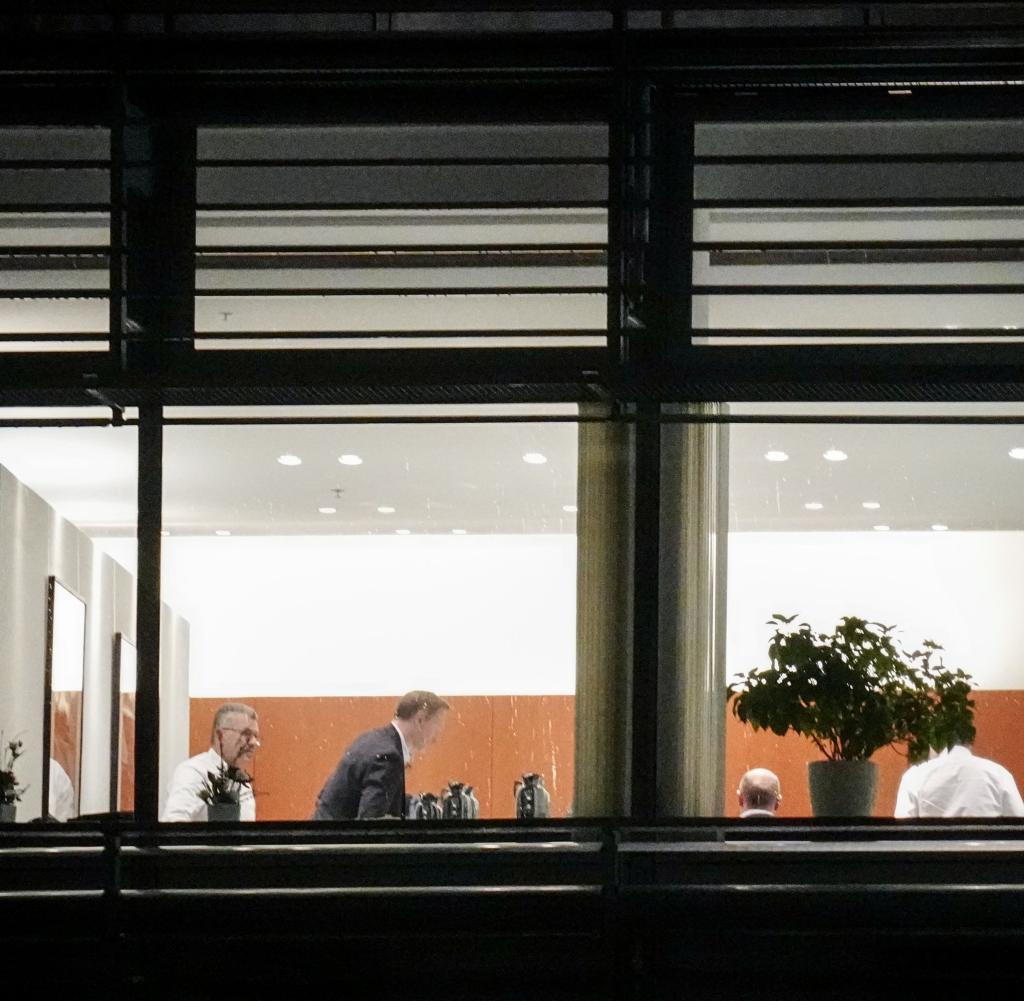Traffic light wants to comply with the debt brake in 2024 – the CO₂ price will be increased
Scholz, Habeck and Lindner announce the breakthrough in household poker
The leaders of the traffic light coalition have reached an agreement in their talks on the federal budget for 2024. See the press release here with Chancellor Olaf Scholz (SPD), Vice Chancellor Robert Habeck (Greens) and Finance Minister Christian Lindner (FDP).
Almost four weeks after the Federal Constitutional Court’s ruling and the subsequent budget crisis, the leaders of the traffic light coalition have reached an agreement. At a press conference, the Chancellor announced how the government plans to plug the billion-dollar hole in the 2024 budget.
DThe leaders of the traffic light coalition have reached an agreement on the federal budget for 2024. Federal Chancellor Olaf Scholz announced this in a joint press conference with Vice Chancellor Robert Habeck (Greens) and Finance Minister Christian Lindner (FDP) on Wednesday afternoon. “The government is sticking to its goals,” emphasized Scholz: climate neutrality, social cohesion and support for Ukraine remain the focus.
“But one thing is clear: we have to get by with significantly less money to achieve these goals,” said Scholz. You therefore have to prioritize. “It’s also about cuts and savings. We don’t like doing them, of course, but they are necessary.”
The Debt brake should therefore be adhered to in principle in 2024. However, the government reserves the right to subsequently suspend the debt rules if necessary if Ukraine’s military or financial situation worsens in the war against Russia, said Scholz.
However, there will be a reduction in the Climate and Transformation Fund (KTF) around 12 billion euros, said Scholz. By 2027, the cuts would amount to 45 billion euros. The total volume of the fund will then be around 160 billion euros. Economics Minister Habeck added that there will be reallocations, but also savings. The Federal Railway will be removed as a position from the KTF. There should be no savings as a result, the state-owned company should only be “financed differently” than previously planned.
Habeck also announced one Increase in the price of CO₂ for refueling and heating with fossil fuels as early as 2024 and therefore earlier than previously planned. This means that the CO2 price will not rise to 40 euros per ton on January 1, 2024 as previously planned – but to 45 euros. Finance Minister Lindner defended the decision: The old price path of the grand coalition would be returned. Also should climate-damaging subsidies to the tune of three billion euros.
Also being examined – as in the case of Ukraine support – is an exception to the debt brake for further payments for the Flood disaster in the Ahr Valley people affected in 2021. The traffic light will approach the Union as the largest opposition faction, said Scholz, and seek their support for this step. Scholz added: “The affected citizens in North Rhine-Westphalia and Rhineland-Palatinate should also be able to rely on the promises made.”
Finance Minister Christian Lindner (2nd from left, FDP) and Federal Chancellor Olaf Scholz (right, SPD) during consultations in the Chancellor’s office at the beginning of the week
Source: dpa/Kay Nietfeld
A ruling by the Federal Constitutional Court in November had put the traffic light government under great pressure. Since then, the Chancellor, Economics and Finance Ministers have discussed how a 17 billion euro hole in the budget for the coming year can be plugged. It was also about how investments in climate protection and the modernization of the economy can be made possible despite the ruling. There is a lack of 60 billion euros in the so-called climate and transformation fund, which was already firmly planned for projects in the next few years. For the coming year alone, this will amount to 13 billion euros.
The Karlsruhe judges had declared a reallocation in the 2021 budget null and void and decided that the federal government was not allowed to reserve emergency loans for later years.


